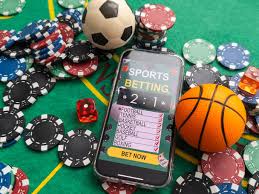
How to Maximize Your Poker Game: Strategies and Tips
If you’re looking to upgrade your poker game and make the most of your sessions, you’ve come to the right place. Poker is not just a game of chance; it requires a blend of skill, strategy, and psychology. This article will explore several effective strategies that can help you How to maximize your poker betinexchange and maximize your poker experience, whether you are a beginner or a seasoned player.
Understand the Basics of Poker
Before diving into advanced strategies, it’s crucial to know the fundamentals of poker. Familiarize yourself with the different types of poker games, such as Texas Hold’em, Omaha, and Seven Card Stud, each with its unique set of rules. Understand hand rankings, betting structures, and the importance of position at the table.
Bankroll Management
One of the most critical aspects of maximizing your poker game is effective bankroll management. Determine how much money you can afford to lose and stick to that limit. A common rule is to have at least 20 to 30 buy-ins for the stakes you are playing. This prevents you from going broke during variance and allows you to stay in the game longer.
Know Your Opponents
Reading your opponents can give you a significant edge at the poker table. Take notes on their playing styles and tendencies—are they aggressive or passive? Do they play a wide range of hands or stick to premium cards? Understanding their behavior will help you make more informed decisions during the game.
Develop a Solid Pre-flop Strategy
Your pre-flop decisions can set the tone for the rest of the hand. Play tighter in early positions and expand your range as you move to later positions. Familiarize yourself with pivotal starting hands based on your position and the actions of your opponents. This knowledge allows you to make better decisions pre-flop and increase your chances of winning the pot.

Post-flop Play and Position
Once the initial betting round is over, your strategy should adjust to the community cards on the table. Use your position to your advantage—acting last gives you vital information about your opponents’ hands. Analyze the texture of the flop and decide whether to bet, call, or fold based on the strength of your hand and your opponents’ actions.
Master the Art of Bluffing
Bluffing can be a powerful tool in poker when used strategically. However, understanding when and how to bluff is essential. The key is to represent a strong hand convincingly. Pay attention to your opponents’ tendencies; some players are more likely to fold than others. Choose spots where your bluff is credible, and avoid overusing this tactic, as it can lead to losing credibility in future hands.
Emotional Control and Patience
Poker is as much a psychological game as it is a mathematical one. Keeping your emotions in check is vital—tilt can lead to poor decision-making. Practice mindfulness and stay patient, even in challenging situations. Remember that poker has ups and downs; focus on making the best decisions overall rather than getting fixated on individual hands.
Utilize Available Resources
Many resources are available to help you improve your poker skills, from books and online courses to videos and training websites. Consider joining a poker community or forum where you can discuss hands and strategies with other players. Review your play regularly, and analyze both winning and losing hands to learn from your mistakes.
Continuous Learning and Adapting
Poker is an ever-evolving game, and the strategies that worked yesterday may not be effective today. Stay abreast of the latest trends and strategies in the poker community. Continuously seek to improve your skills, whether through reading, watching, or playing. Adaptability is key to long-term success in poker.
Conclusion
Maximizing your poker game takes time, dedication, and a willingness to learn. By understanding the fundamentals, managing your bankroll wisely, reading your opponents, and continuously improving your strategy, you can become a more formidable player. Remember, every session is a learning opportunity—embrace the journey and enjoy every moment at the table.
